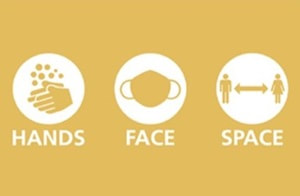College life
Once Gen Z students started to arrive on campus as freshmen during the latter part of the 2010s, college life gradually changed away from how it was when millennial students ruled campus. But, things got severely disrupted when the COVID-19 pandemic hit in early 2020. While things seem to have gone back to normal from the outside, a closer look at what college life looks like now shows that the new normal isn't the same as the old normal.
“Good times lead to good feelings” - Being out with friends encourages students to meet someone and engage in casual sex
|
My surveys exploring student health and sexual behavior found that 40% of students hadn’t gone out at all during the past seven days, 33% one night only, and barely 6% four nights or more. Nevertheless, those who went out were looking to have fun and maybe find someone for one night or more. After all, “[e]veryone is just trying to have a good time and no one wants to go home alone, again, this is a small college.” (heterosexual female, 20, junior).
Students responding to my surveys expressed generally positive attitudes toward having a good time. Almost three-quarters (73%) thought that college students are more likely to engage in casual sex than non-students, and 48% said being out and surrounded by friends makes it more likely to meet someone and engage in sexual activity. The majority of students emphasized the advantages of going out with friends over going out on their own or staying at home. Many of them were open about the fact that sexual activity may be on the cards in this situation or is the sole motivator for going out. Continue reading... |
Greek life – all fun, no work?
|
Greek life at colleges and universities generally doesn’t have the greatest of reputations. Most people only hear or read about Greek life in connection with scandals such as hazing-related injuries or deaths, sexual assault allegations, or racist incidents. Beyond that, perceived negatives associated with both fraternities and sororities include:
|
Fall 2020 – the COVID semester that pushed faculty and students to their breaking point
|
After COVID-19 had been declared a national emergency on March 13, 2020, more than 1,300 colleges and universities in all 50 states canceled in-person classes, closed their dorms and campuses, and switched to online-only instruction. Students were forced to move back home or to find alternative accommodation. The switch to remote teaching created substantial challenges and struggles for many. Faculty also struggled with the impact of pandemic-related restrictions on their personal and professional lives; many had to go from in-person to online teaching with no training and often no or only scant support from their institutions.
Continue reading... |
Want to earn your degree? Get enough sleep, eat breakfast, and stay away from fast food
|
As a group, college students are surprisingly understudied regarding their health behaviors and habits and their impact on students’ academic success or failure. Various surveys collect data on students during primary and secondary education (K-12). For example, the national Youth Risk Behavior Survey (YRBS) from the Centers for Disease Control and Prevention (CDC) consists of a set of surveys that collect data from students in grades 9 through 12 every second year. However, once young adults leave the K-12 system, they cannot be reached easily anymore. Therefore, it doesn’t surprise that most published research on the correlation of eating habits and associated GPA/grades has focused on students in Pre-K through high school. On the other hand, there are only a limited number of studies concerning college students.
Continue reading... |
“No one likes the girls who tell.” Why victims of sexual violence remain silent
|
In September 2019, a female student at Florida Gulf Coast University (FGCU) met a male student at a party. At first, the encounter went well until things changed the next morning. The male student choked the victim, raped her, took a video of her, and shared it online. Even though the Office of Institutional Equity & Compliance (OIEC) at FGCU investigated the incident, it took until January 2021 before the investigation was completed. During that time, the victim received basically no information from OIEC. Still, at the end of the investigation, the victim was informed that sufficient evidence had been found that “the respondent subjected the complainant to nonconsensual sex as well as sexual exploitation”, and the perpetrator was suspended from the University for three years. However, the police and the State Attorney’s Office refused to pursue criminal charges against the male student, citing insufficient evidence.
Continue reading... |
What type of natural disaster has a greater impact on students’ mental health – chronic or acute?
|
“I was in a shooting in high-school and then covid and then the hurricane. You can imagine the impact and wanting to move out of Florida.” (female, 20, senior)
Due to its location in Southwest Florida, Florida Gulf Coast University (FGCU) is no stranger to dealing with the impact of natural disasters. Since 2004, four hurricanes and several tropical storms have passed through our area, causing disruptions and temporary class cancellations. Continue reading... |
“I however can not remember, if water is a chemical substance.” The challenge of teaching science college courses
|
Teaching STEM (Science, Technology, Engineering, and Mathematics) courses at two- or four-year colleges has always been challenging. Even before COVID-19, many students arrived unprepared for freshman-level STEM courses. The reasons vary from individual to individual, but some common factors I identified for students in my Anatomy & Physiology (A&P) classes were:
|
Getting drunk isn’t always just care-free fun
|
The two main reasons often put forward to explain increased alcohol consumption in social settings are ‘beer goggles’ and ‘liquid courage’. Beer goggles is a colloquial term used to describe the phenomenon where a person's perception of physical attractiveness is supposedly altered or distorted after consuming alcohol. When someone is under the influence of alcohol, their judgment and inhibitions can be impaired, which may lead them to perceive others as more attractive than they might appear when sober. This perception shift is often used humorously to explain why someone might find a person attractive at a party or social event. However, upon sobering up, their perspective on that person's attractiveness changes.
Continue reading... |








